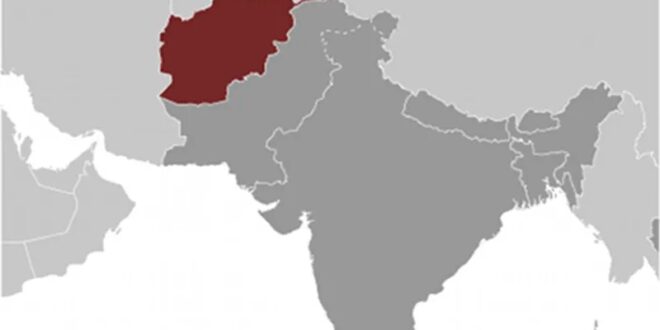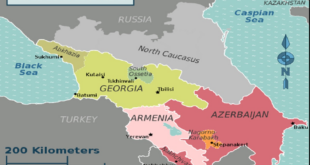While most of the regional stakeholders have positively responded to India’s invitation to attend the Regional Security Dialogue on Afghanistan on November 10, the fact which cannot be ignored is its Afghan stakes and concerns received hardly any attention at the regional platforms following American withdrawal from Afghanistan.
While Pakistan became crucial to all regional formats of discussions on Afghan issues since the Taliban takeover in August, India’s presence was not even sought in most of the multilateral meetings because it did not share a land border with Afghanistan, for instance, the meetings hosted by Iran did not include India.
Fortunately, in October, India was invited to a meeting hosted by Russia on Afghanistan although New Delhi was not invited by Moscow to an earlier meeting on Afghanistan in August. The meeting in October included the Taliban representatives and the Indian delegation not only officially met the Taliban team on the sidelines of the Moscow format talks, New Delhi finally expressed readiness to provide extensive humanitarian assistance to the Afghans and the Taliban expressed their willingness to receive the aid as the joint statement of the Moscow format made it clear.
To stay the course and avoid further marginalization, India considered hosting and inviting other stakeholders to a Regional Security Dialogue this month and Pakistan declined India’s invitation to attend the Dialogue to be hosted by National Security Advisor (NSA) Ajit Doval. However, India refrained from inviting the Taliban to the meeting perhaps because it considers invitation to a regime’s delegation for an official meeting is equivalent to recognizing that regime.
Even while Pakistan has maintained its diplomatic relations with Afghanistan, it has not formally recognized the Taliban regime. Other regional stakeholders have also not extended their formal recognition to the regime although they invited the Taliban for talks such as Russia. New Delhi’s reluctance to engage the Taliban regime will enhance Pakistan’s significance in the eyes of regional players. There are reforms on multiple fronts which the Taliban regime has to bring in ranging from representing other ethnic communities in government to respecting human rights including women’s rights in their bid for recognition.
India can discuss all these issues from a position of strength as the Taliban, in its present appearance, have not been able to receive recognition. India needs to ensure that Pakistan is not able to use Afghanistan and Afghans to launch anti-India cross-border terrorist operations which it needs to discuss proactively by engaging the Taliban. India needs to discuss how Pakistan has not yet responded to India’s plans to provide wheat and other assistance to Afghanistan, which were discussed on the side-lines of the Moscow format conference last month. Pakistan did not allow its territory for Indo-Afghan trade in the past and now by declining India’s invitation to the dialogue it has sent India’s commitment to the cold storage.
It can be noticed how Pakistan lost no time in demonstrating its enthusiasm to reset the fraying relations with Afghanistan soon after the Ghani regime collapsed and the Taliban took over. Foreign Minister Shah Mehmood Qureshi during his visit to Kabul last month invited the interim foreign minister of the Taliban government Amir Khan Muttaqi to make his first visit to Pakistan. Pakistan’s objectives are clear, first to maintain its control over the ruling regime which is not a monolithic group.
While Pakistan has its prop – the Haqqani network within the regime, it has to keep its sway over other shades of the Taliban by playing a balancing act. Second, Pakistan wants the Durand line being recognised as the international border between it and Afghanistan which has been resisted by all ruling regimes of Kabul including the Taliban. Third, the country by maintaining its influence over the disparate groups within the Taliban is interested to ensure that non-state actors such as the Tehreek-e-Taliban Pakistan (TTP) and the Balochistan Liberation Army (BLA) do not use Afghan soil to launch attacks against it.
Engaging the Taliban
New Delhi’s reluctance to engage the Taliban proactively has been driven by a perspective that links the group to Pakistan’s training and aiding. India has failed to develop a coherent strategy to deal with the new regime which does not represent a monolithic structure.
For instance, senior Taliban commander Mullah Abdul Salem Zaeef, acting Afghan Defense Minister Mullah Yaqoob and many other Taliban leaders were not pleased with Pakistan’s backing of members of the the Haqqani Network as per certain reports. The Taliban regime did not hesitate to express its concerns about Pakistan fencing its border and argued Afghanistan had not agreed to recognize Durand Line as the international border. There are differences of opinion between Afghan Taliban and Pakistan over governance issues as well.
It has been argued that the Afghan Taliban under the late Mullah Omar were an indigenous movement unlike many other jihadi groups that undertook anti-Indian activities. Afghan Taliban spokesman Zabihullah Mujahid had said in an interview in 2010 that “the Afghan Taliban concentrate on Afghanistan. We have never taken part in any attack in India, nor do we attack anyone at Pakistan’s behest.”
Former Indian diplomat M.K. Bhadrakumar argued that India by taking an anti-Taliban stance had hindered its interests in Afghanistan. He said: “Mixing up the Taliban completely with the adversarial mindset of the Pakistani security agencies was equally wrong. Overlooking the indigenous roots of a home-grown movement was always injudicious.”
India’s proactive engagement with the Taliban along with simultaneous engagement with other regional players will lessen Pakistan’s influence over them. Pakistan may have overwhelming influence over the Afghan Taliban but India can only capitalize on the divergences and disparities within the group by remaining engaged with the group. The Taliban are not going to renounce their power, they may take time to bring in necessary reforms, change perceptions and get internationally recognized.
 Eurasia Press & News
Eurasia Press & News




